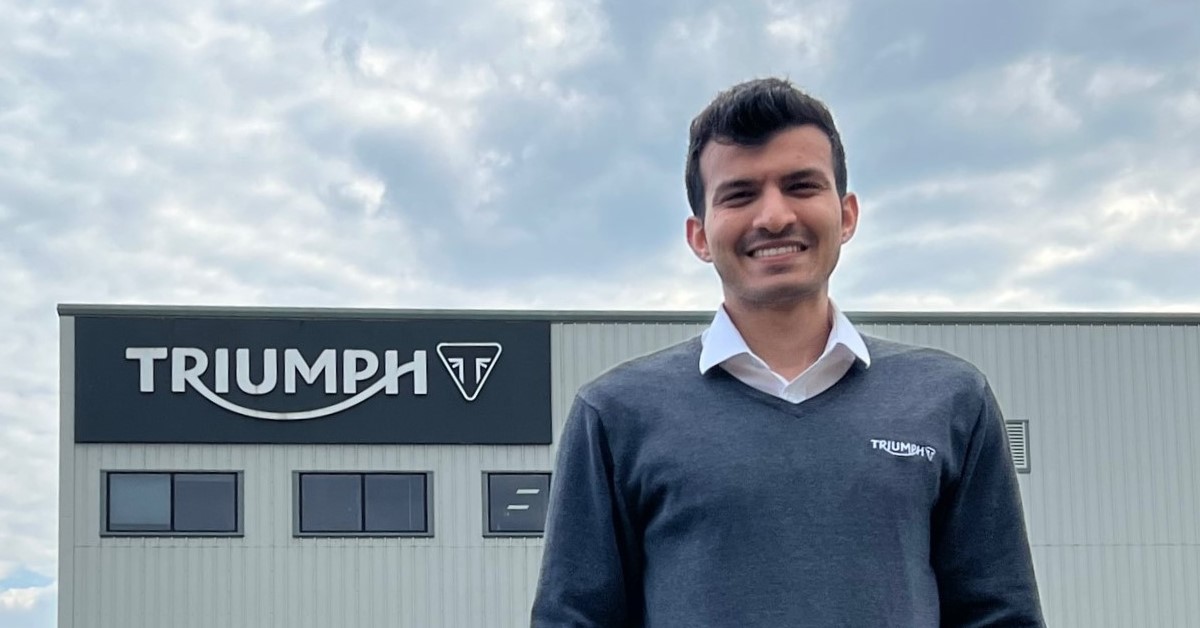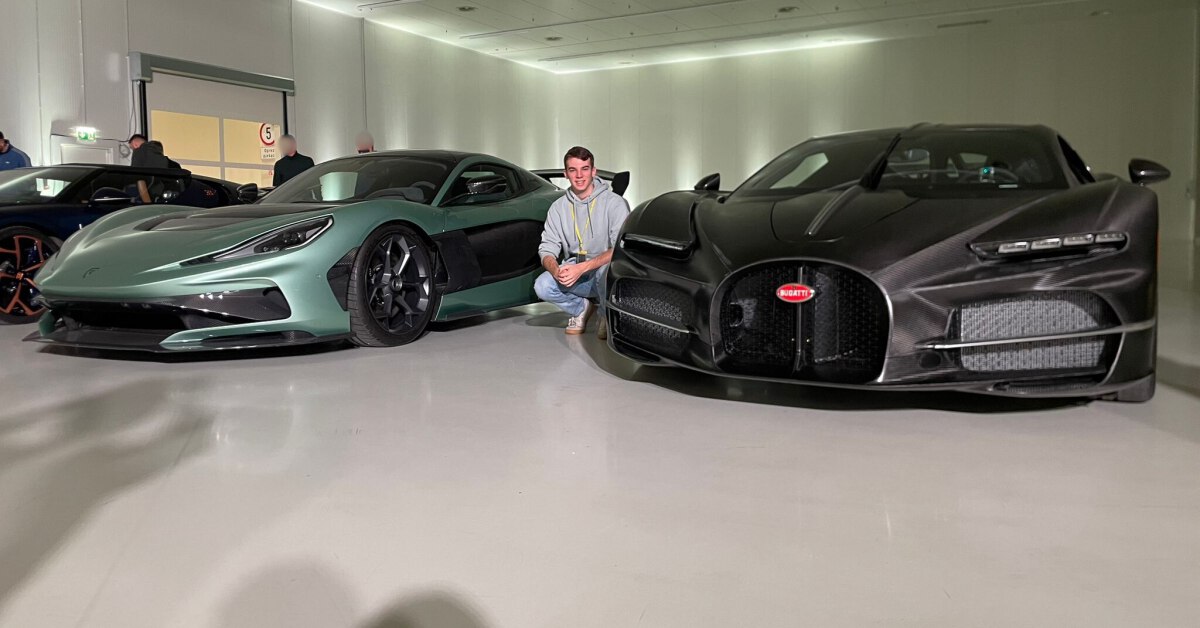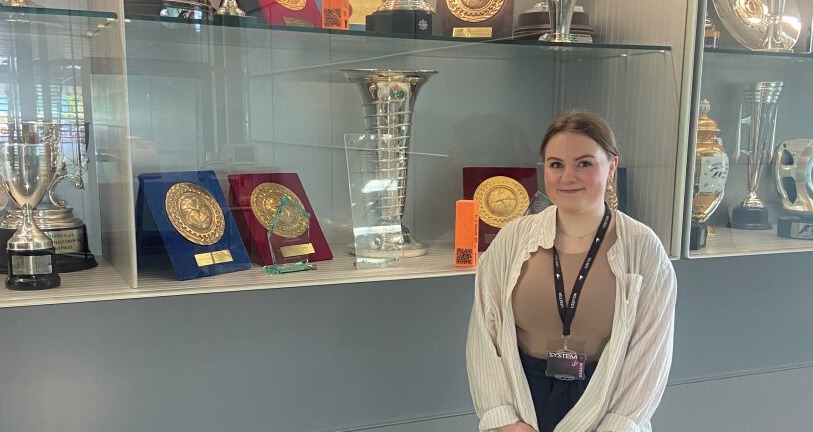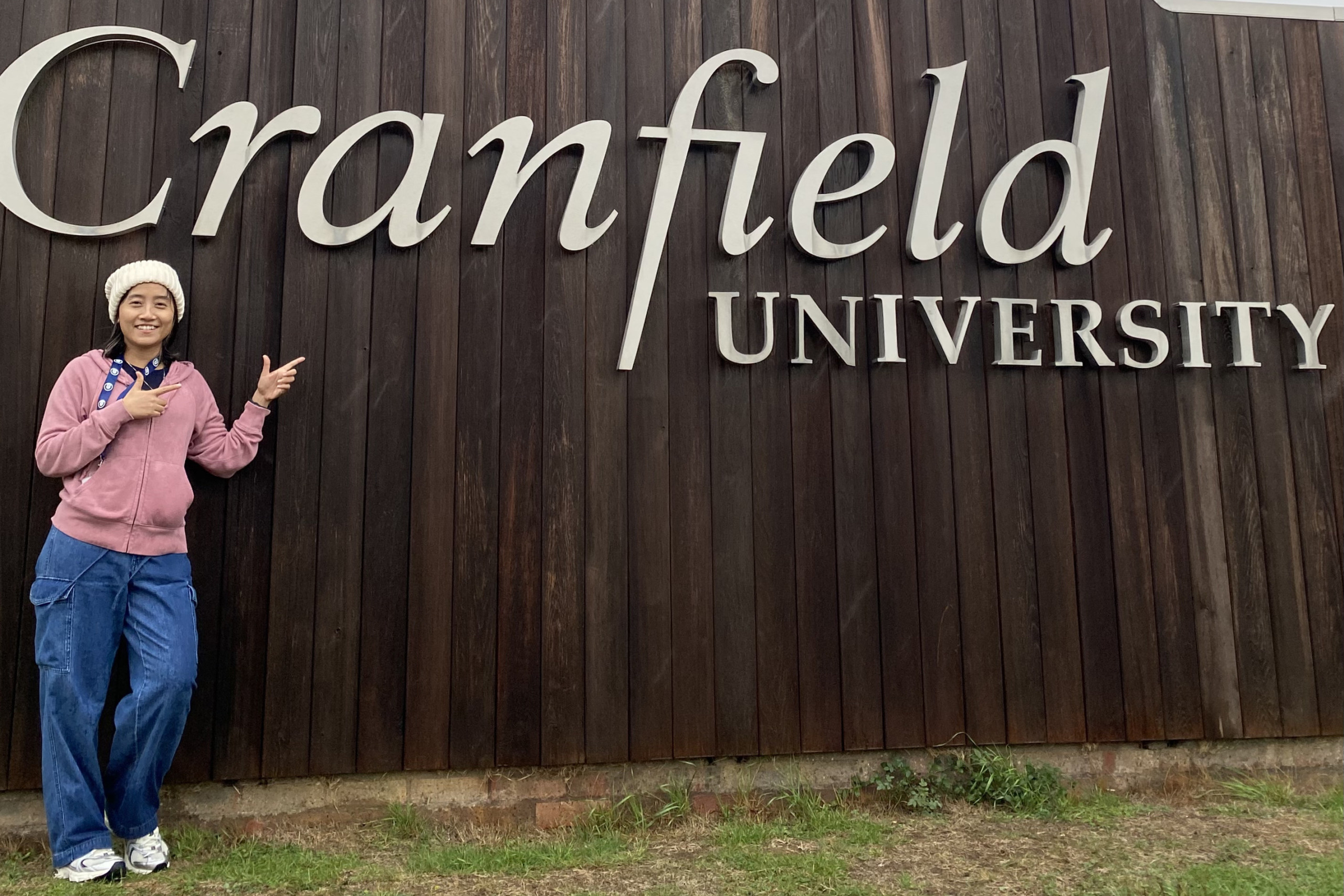Automotive Engineering MSc graduate Aditya Pawar talks about his thesis project and his exciting new role
13/06/2022

Aditya Pawar completed the Automotive Engineering MSc in 2021. Here he talks about his experience of studying at Cranfield University, his thesis project, and his exciting new job.
What’s your academic background?
I pursued my bachelor’s degree in Mechanical Engineering at the Symbiosis Institute of Technology in India. During the four-year course I devoted my time to designing and building a race car as a part of my extracurricular activities. I am thankful to my institute for giving me the freedom and support to facilitate this. During this period, I understood how challenging it is to build and develop something from scratch. On the other hand, I was glad to have an amazing community as it left some unforgettable memories. Most of my teammates have now scattered to various parts of the world to further pursue their interests.
Additionally, I had an opportunity to work for six months at Monter Technologies Limited as part of my degree. At Monter, I worked on designing an e-drive for a conceptual electric vehicle bike. This gave me exposure to engineering an environmentally sustainable project and gave me the knowledge and confidence to take up industry-level challenges.
Why did you choose the Automotive Engineering MSc at Cranfield University?
With my knowledge, background, and passion in the automotive industry, I believed pursuing a master’s in the UK would potentially open up opportunities for me to start a career within the transport sector. After doing my personal research, I found Cranfield to be the best suited technical university to underpin my goal. I like the fact that Cranfield University not only has good industrial links and is high ranking, but is also research oriented.
How did you find the course?
In terms of academia, I realised that the course placed a lot of emphasis on the group design project, along with taught modules, which I felt was a great learning point. During this project, I and my team benchmarked various auto companies to design a specialist vehicle. Moreover, the course also provides you with the freedom to choose your dissertation topic. I appreciate that the professors were incredibly supportive and helpful throughout the course, especially during the design project when my group required some guidance to take decisions while working together.
What were your highlights?
In the beginning, I felt the teaching process for the modules was quite intense. With a lot of things to learn and grasp, the modules left a very slim time gap between each other. It was very critical to stay focused to follow the learning curve, but it felt satisfying to meet the submission deadlines. Since I lived on campus, I enjoyed interacting with people from various streams and schools. The great thing about living on campus was that I was able to get involved in many sports and physical activities, which I believe is important to physical and mental wellbeing.
How did the COVID-19 pandemic affect your student experience?
During 2020-21, four months into the one-year course, strict restrictions were implemented, which affected social and academic life. Some of the modules which initially were planned to be conducted face-to-face were then changed to an online teaching mode. The library and sports hall too were shut. Even the access to the laboratory, required during the thesis projects was delayed due to the rise in COVID-19 cases on campus. Despite all the limitations brought by the pandemic situation, we managed to get the best during these tough times.
Can you talk a bit more about your thesis?
It was a complex yet careful decision to select from a wide pool of topics, including industry-sponsored as well as faculty-proposed. Your thesis topic is critical, as it can help you to pursue the role you wish to take professionally. Although I had an opportunity to work on one of the industry projects, I went for the topic which I felt driven by and wished to specialise in it — smart structures.
Even though the knowledge I initially possessed about it was shallow, I gradually developed understanding of the inverse finite element method (iFEM). It is one of the most reliable methods to predict the shape of any unknown material structure under loading using strain values. It consisted of the learning of Mindlin plate theory, shape functions, 4 node inverse shell elements. The final deformation was calculated for the main FEA equation F=KU, which consisted of differentiated element shape functions which was found using Matlab. It was a great learning experience working in the laboratory, which helped me test the practicality of my project. It involved other additional learnings apart from virtual experimentation, such as strain sensor installation, its data acquisition and manufacturing of composite materials, which was something completely new for me.
What has been your career path since completing your MSc?
After completing my thesis, I have extensively used my time to learn about the automotive and related industries, their market, and job role availability. Mostly I have tried to find out if my engineering knowledge and interest could align with the company’s motive. On finding so, I worked on building my profile by learning about the helpful information required to update myself for the role.
I wish to build my profile in design development or product development and contribute towards a sustainable sector in the long run.
What else have you been up to since completing your MSc?
After my MSc, I applied for multiple job roles and aimed to reach the interview stage. I also applied to graduate programmes, for which the selection process is slightly more competitive and prolonged. I have received multiple rejections, some at the initial stage and others later. However, each rejected application boosted my abilities and prepared me more for the upcoming ones.
In March 2022, I had my interview with Triumph Motorcycles Limited, when I was offered a position as a design engineer. Currently, it has been over a month since I have started my work at Triumph Motorcycles Limited on returning from my visit back home in India. I am delighted and thankful to Triumph Motorcycles for this exciting opportunity to help me execute my engineering skills at a practical level.
Categories & Tags:
Leave a comment on this post:
You might also like…
Automotive Engineering: From student to hypercar innovation at Rimac
We sat down with recent graduate Thomas Perrin, to discuss how his year on the MSc in Automotive Engineering at Cranfield University propelled him from the lecture hall directly into the ...
What this year at Cranfield really meant to me
Every Cranfield journey is unique. In this alumni reflection, Zachea Scicluna shares what her year at Cranfield truly meant, from facing uncertainty to gaining hands-on experience in industry-backed projects. I’ve been reflecting (and delaying) ...
Preparing for assignments and exams?
Sorry! We know it seems a bit mean to mention the exams in January rather than looking forward to the break before it! However, we know many of you will be thinking about your forthcoming ...
Screening for FTSE 100 companies on Bloomberg
So you’re researching an index and need some data on its constituent companies? Bloomberg’s Equity Screening tool makes light work of this, not just for the FTSE, but for indices, exchanges and sectors worldwide. Type EQS ...
Accelerating my future: How Cranfield put me on the fast track to automotive safety innovation
Hello! I’m Michaela Kaiser, and I’m thrilled to share my journey studying abroad. I’m from Calgary, Canada, and I recently graduated from Cranfield’s MSc Automotive Engineering course. My path to Cranfield ...
From Myanmar to Cranfield: My path to Renewable Energy
As someone who is passionate about sustainability, my career goal is to build a path in the renewable energy sector. My aspirations comes from the benefits of developing sustainable energy sources and ensuring energy ...






